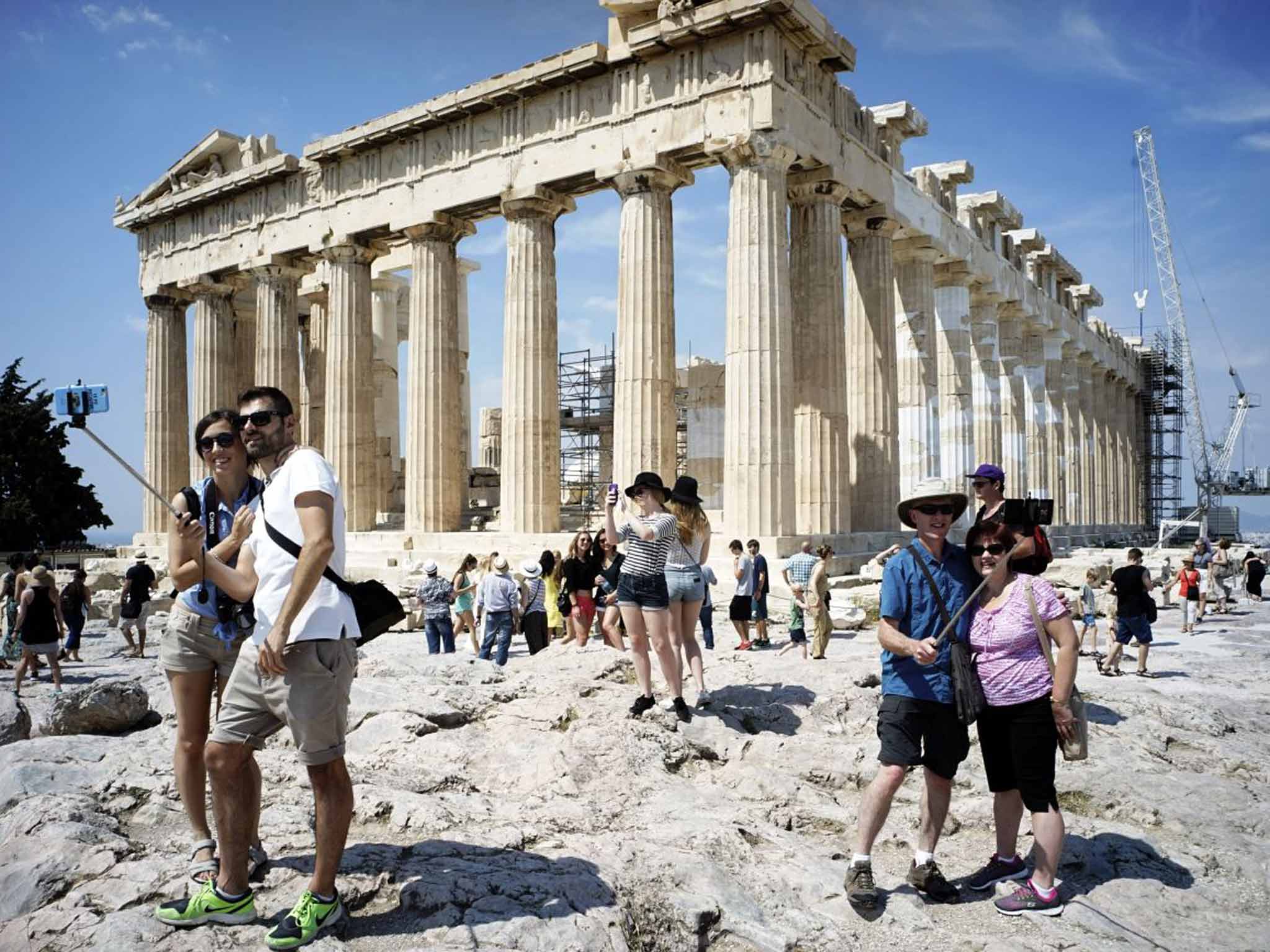Greece holidays: Meet me in the Tsipras Taverna
The man who pays his way

Your support helps us to tell the story
From reproductive rights to climate change to Big Tech, The Independent is on the ground when the story is developing. Whether it's investigating the financials of Elon Musk's pro-Trump PAC or producing our latest documentary, 'The A Word', which shines a light on the American women fighting for reproductive rights, we know how important it is to parse out the facts from the messaging.
At such a critical moment in US history, we need reporters on the ground. Your donation allows us to keep sending journalists to speak to both sides of the story.
The Independent is trusted by Americans across the entire political spectrum. And unlike many other quality news outlets, we choose not to lock Americans out of our reporting and analysis with paywalls. We believe quality journalism should be available to everyone, paid for by those who can afford it.
Your support makes all the difference.Travel, like the international banking system, depends on confidence. That's why, in this strange summer, a sense of anxiety has replaced the customary thrill of anticipation for many travellers.
The atrocity on the beach in Tunisia two weeks ago shockingly revealed the vulnerability of tourists to sheer evil. Continuing chaos in Calais shows how global events and a local industrial dispute can combine to wreck the journey plans of tens of thousands. And the unfolding drama, or pantomime, in Greece threatens to spoil a million holidays.
"Will the last person to leave the Tsipras Taverna please turn out the lights?" – expect to read that headline soon. Happily, like the absurd newspaper article announcing an impending airlift of British tourists from Greece, stories that holidaymakers could be stranded in a collapsing country are a load of old tzatziki.
The nation – at least those parts that are relevant to tourists – will not shut down while the unsuspecting traveller takes a dip or explores the Acropolis. But that doesn't stop plenty of prospective visitors worrying that it might. So, let me try to put some minds at rest.
I have journeyed through a country experiencing economic and political turmoil. As the Soviet Union imploded in the early 1990s, I travelled on trains and planes from Leningrad (now St Petersburg) through the Baltic republics and Belarus to Ukraine and Moldova.
While it was the worst of times for the locals, in practical terms travel was straightforward for anyone carrying hard currency. As the rouble fragmented, prices for those with deutschmarks, dollars and even sterling got silly; I went to the airport in Minsk and bought a ticket for the next flight to Kiev for less than a pound.
Whatever happens in the corridors of power in Athens, Brussels and Berlin this summer, the traveller to Greece who follows the advice to pack plenty of euros has little to worry about (apart from villains who see cash-carrying tourists as a new alternative to ATMs).
Indeed, the best prescription for politicians such as Angela Merkel and Jean-Claude Juncker is probably a fortnight on a calm, beautiful and relaxing Aegean island. While poolside in Poros they might even meet that nice Yanis Varoufakis over an ouzo, now that the former Greek finance minister has more time on his hands.
Never mind the baklava
It's hardly normal to holiday in a country on the edge of a financial breakdown (though older readers may recall the long, hot summer of '75 in Britain, when along with the temperature inflation soared to 24 per cent). But even though life for many Greek people is extremely tough, this is the best time to take a holiday on an eastern Mediterranean island.
A shortage of confidence in Greece means low prices are prevailing deeper into July than normal. Some of the people who flew to Corfu and Rhodes in the past week with Britain's biggest tour operator, Thomson, paid less than £150 including flights, transfers and accommodation.
Holiday prices are rising, partly because of demand displaced from Tunisia. Yet on Tuesday, holidaymakers will fly from Manchester to Skiathos and from Luton to Kefalonia, touching down in time for a beer and baklava, for a week's holiday in the low £200s.
The first line of the Sex Pistols' hit, "Holidays in The Sun", is: "A cheap holiday in other people's misery." Is it mercenary to take advantage of low prices? Not remotely, because only tourism can rescue Greece. Your holiday pumps money into the local community, creating jobs and (probably) contributing tax to the treasury in Athens.
Grab a Greek gift while you can. Already there are signs that sense is common among travellers, if not politicians. I have been looking at easyJet flights next month from Gatwick to Preveza, the airport for the Ionian island of Lefkas. Flying out on 9 August for a three-week stay, the answer is 747: not the type of plane, but the price in pounds. The outbound fare is £247, while demand for the return trip on the last Sunday of August has pushed the price of a three-hour flight to exactly £500.01; with baggage extra.
Domino theory
Some people are fretting about a domino effect, with a "Grexit" triggering further shocks through the Mediterranean. One worried reader writes: "I'm going to Cyprus in October. Is the euro crisis in Greece going to affect Cyprus and make shops short of stock?"
The only domino effect I foresee for the Hellenic world this summer is the gentle clatter of tiles in a sleepy village square. And the only British travellers I fret about are those tempted to have a few beers and then rent a motorbike to whizz around the island. Some of those alcohol-fuelled adventures will prove tragic. But for everyone else I predict a happy ending.
Join our commenting forum
Join thought-provoking conversations, follow other Independent readers and see their replies
Comments